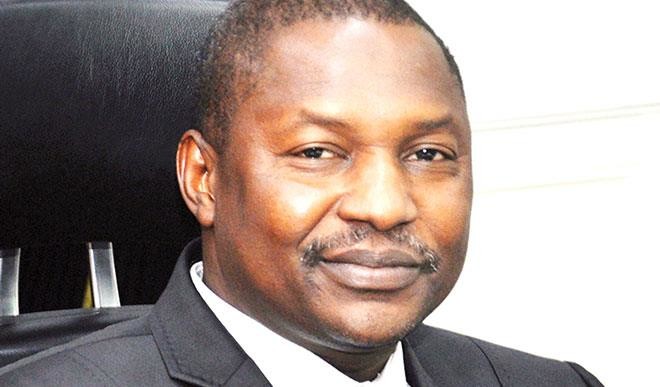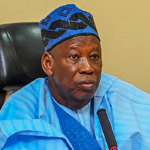
A memorandum submitted before the Presidential panel of investigation to review compliance of the armed forces with human rights obligations and rules of engagement by human rights activist, Femi Falana (SAN) on the military justice system has yet again returned attention to the status of the Armed Forces Act (AFA).
The Sir Justice Biobele A. Georgewill-led seven-man panel, set up by Vice President Yemi Osinbajo, was saddled with the task of investigating allegations of human rights abuses levelled against the military by Amnesty International and to recommend means of preventing violations of international human rights law in conflict situations, among others.
The panel began its proceedings in Abuja last Monday with the memorandum of representatives of Moon Valley in Kwande Local Government of Benue against the Nigerian Army 93 battalion in Takum Local Government of Taraba State. The community accused the army of taking sides with the Jukun during the crises between the community and Kashimbilla District in Taraba State.
The hearing on this will continue when the panel returns to Abuja for conclusion sittings on any outstanding memoranda on October 23 after its sittings in the other five geo-political zones.
Falana in his memorandum titled “Military Justice Negates Human Rights” argued among other things that the act does not reflect a democratic dispensation, noting that most of the provisions in the act would be struck out if taken to court.
He said the rules of procedure of the Nigerian military were borrowed from the United Kingdom in 1972, adding that those rules of procedure in the UK have been modernised in line with the Human Rights Act of the UK (1986).
According to him, undue interference in trials by members of military courts is one of the instances of abuse of human rights in military justice system.
“It must be stated that a military court ought to be an unbiased umpire that should never enter into the arena of conflict. Though the law allows the court to put questions to witnesses for the just determination of a case, the questions must not be used by the court to compromise the right of an accused person to fair hearing,” he said.
Falana said under the military justice system, there is no provision for bail. He said, “Once a service person is remanded for trial by a court martial, the fundamental right to freedom of movement as enshrined in Section 41 of the 1999 Constitution is automatically restricted and the person clamped into detention throughout the duration of the trial.”
On the right to protest, Falana said contrary to the general belief in military circles, a peaceful or violent demonstration or protest by soldiers does not constitute mutiny per se.
In his submission before the panel, Falana said the involvement of soldiers in internal conflicts and deployment for election is illegal and unconstitutional. He said the current AFA is overdue for review or repeal.
“Since the Buhari administration is determined to end impunity and restore the rule of law in the country, the Federal Government should not hesitate to review the AFA and the Rules of Procedure to make them conform to the fundamental rights provisions of the constitution and other international human rights treaties and protocols which have been ratified by Nigeria,” he said.
In his recommendations, he urged the panel to declare that soldiers unless on duty should not wear uniform in town, adding that it should be recommended that the National Assembly should allow the Administration of Criminal Justice Act (ACJA, 2015) to apply to military courts and for military courts to be headed by retired high court judges.
Responding on behalf of the Nigerian Air Force, Group Captain Musa Sanda Jiga, who is the Air Force’s Deputy Director of Legal Services, said while he agrees on the need for reforms, Nigeria cannot afford to have a military that does not take orders.
“Once in the military, you sacrifice some freedoms, which include movement, speech, assembly, political rights and even to a large extent religious and ethnic,” he said.
He said one of the best ways to achieve the reform is to have a legal service that is independent of the Armed Forces Command, but added that command influence as identified by Falana is not limited to Nigeria alone but exists all over the world.
Counsel to the Nigerian Army, Ogbeni Biola Oyebanji, said while he concedes that the several provisions of the AFA and the rules of procedure of military as presently constituted need to be reviewed to be in line with what is obtainable in other democratic settings, he urged that the panel in its recommendations must discountenance protest and demonstration as a form of registering complaints by personnel of the Armed forces.
He said allowing military men to go on protest and demonstration is endangering the country, adding that the negativity that may be inflicted on the Armed forces if indiscipline is allowed to fester cannot be overemphasised.
Oyebanji said on the granting of bail that it is the same principle guiding the granting or refusal of bail that obtains in the regular and military courts. He said the grounds for denial of bail to accused persons are as contained in Section 122 (6) of the AFA.
He said, “Suffice to state that, a soldier on enlistment attains a dual legal status. He becomes subject to military and civil laws and this status is referred to as the doctrine of compact which imposes law and military discipline on any one on completion of the Attestation Form upon which he takes the oath of allegiance thereby subjecting himself to the jurisdiction of the AFA.”
He urged the “Panel to recommend areas that are beneficial generally to the government and to refrain from tampering with those areas which premise the dignity, honour, continuity and security of the country are predicated upon.”
Also commenting were a former Director General of the National Institute for Policy and Strategic Studies (NIPSS), Professor Shuaibu Danfulani and a Swede who is an expert on non-international conflict, David Falt.
Appearing for the Save Human Foundation (SHF), Falt said the whole humanitarian legal framework was written with envisaging of two sovereign nations at conflict and not local insurgencies. He said Nigeria is not the only country that needs to review its engagement rules in view of the absence of international conflicts.




